‘On the brink’: Gaza hospitals shutting down as Israel continues to bomb them
By Maryam Qarehgozlou
Fear-stricken people frantically run towards an ambulance hit by a missile near the Al-Shifa Hospital in northern Gaza as it was transferring critically wounded patients to the Rafah crossing with Egypt.
Many lifeless bodies lie strewn on the ground outside the largest medical facility in the besieged coastal territory that has not only been treating the wounded but also providing refuge to the displaced.
According to a statement by the Palestine Red Crescent Society (PRCS), a medical convoy comprising five ambulances set off from the Al-Shifa Hospital on Friday, but had to return to the hospital as the road was blocked due to the rubble left by the Israeli shelling in that area.
Only a kilometer from the hospital, one of the ambulances was hit by an Israeli missile and the second ambulance was struck in a mere two-meter distance from the hospital gate, the statement said.
“The deliberate targeting of medical teams constitutes a grave violation of the Geneva Conventions, a war crime,” the organization stated, pointing to the gravity of Israeli crimes.
The Israeli strike on the medical convoy, which according to health officials killed at least 15 people and wounded 60 others, was not the first and will not be the last, local activists warn.
The health ministry in Gaza in a statement on Tuesday said Israel is “waging a frenzied war” on hospitals in the besieged territory, amid growing calls for an end to Israeli war crimes.
In a statement on Saturday, WHO condemned the attacks on hospitals and reiterated the urgent need to protect all health workers, patients, health transport, and health facilities.
“Attacks on health care, including the targeting of hospitals and restricting the delivery of essential aid such as medical supplies, fuel, and water, may amount to violations of International Humanitarian Law,” the world health body said in its statement.
On October 7, Israel waged a bloody war against the Gaza Strip after Palestinian resistance movement Hamas launched ‘Operation Al-Aqsa Storm’ in response to unabated atrocities against Palestinians.
In the past four weeks, violence has reached alarming proportions, with many hospitals and medical centers bearing the brunt of the Israeli aggression, which has so far killed more than 10,000 people.
Here are some of the major attacks on hospitals by the Israeli regime in the past month:
Al-Ahli Arab Hospital
On October 17, ten days into the aggression, the Israeli regime struck Al-Ahli Arab Hospital in Gaza City.
The deadly blast, which came amid indiscriminate bombings, killed over 700 people, most of them taking shelter in the hospital following days of relentless Israeli strikes in the besieged territory.
A week before, the Israeli military had ordered the evacuation of 22 hospitals in northern Gaza, including this Anglican-run hospital, where hundreds of patients were receiving treatment.
The Israeli regime alleged that the bombing of the hospital was the result of a rocket misfire from the Palestinian resistance movement Islamic Jihad and not a result of Israel’s bombing of the strip.
Israel’s attempt to deny responsibility by blaming the Palestinian resistance fighters for the explosion contradicted its immediate response after the explosion, when Hananya Naftali, a digital aide to Israeli Prime Minister Benjamin Netanyahu, confirmed that the Israeli warplanes had struck the hospital.
By the time of the attack on Al-Ahli Hospital, Israel had already carried out strikes on 51 healthcare facilities in the Gaza Strip, killing several healthcare workers, according to a statement by the World Health Organization (WHO).
Later, media investigations revealed that Israel’s claim about the hospital bombing had no basis.
Turkish-Palestinian Friendship Hospital
While the Israeli and Western media outlets were busy distorting facts about the deadly attack on the Al-Ahli Arab Hospital, many other hospitals in the territory also came under ferocious attacks.
On October 30, the Turkish-Palestinian Friendship Hospital, Gaza’s leading cancer treatment facility, announced in a statement that it suffered extensive damage due to Israel’s relentless bombings.
“My message is please don’t kill cancer patients,” hospital director Dr. Sobhi Skeik said after the attack.
"The occupation not only increased the suffering and pain of cancer patients and deprived them of medicines and travel for treatment abroad, but it now endangered their lives by targeting the hospital surroundings," he said, as cited by Anadolu.
WHO chief Tedros Adhanom Ghebreyesus, in a post on X, said strikes on the Turkish-Palestinian Friendship Hospital in Gaza were “terribly concerning.”
“Cancer patients are already fragile, and it’s imperative to do everything possible to ensure they’re receiving the care they need, it’s truly a matter of life or death,” he wrote.
Two days later, Palestinian health authorities said the hospital was closed as it ran out of fuel amid the Israeli regime’s crippling blockade of the territory.
Al-Quds Hospital
On Friday, the same day that the convoy of ambulances was hit in the immediate vicinity of the Al-Shifa Hospital, Al-Quds Hospital, the second-largest health facility in Gaza City, and its surrounding area came under intense shelling, which resulted in killings and injuries.
It came after the Israeli regime authorities ordered the evacuation of the hospital, a call that was rejected by hundreds of people, including children and women, who had taken refuge there.
On Monday, the Palestine Red Crescent Society warned that fuel at the prominent Gaza City hospital will run out in 48 hours amid a complete blockade on entry of fuel into the city.
Once the fuel runs out, the statement noted, vital equipment at the hospital will be forced to shut down, including resuscitation equipment, baby incubators and intensive care units.
Indonesian Hospital
The Indonesian Hospital, north of Gaza, has also seen attacks in its immediate vicinity in recent days.
Like other hospitals, Indonesian Hospital has also refused calls to evacuate and denied accusations that Hamas fighters are using the medical facility to launch rocket attacks at Tel Aviv.
“We built this hospital in a completely professional context, which is in accordance with the needs of the people of Gaza, both then and now,” Sarbini Abdul Mura, head of the NGO that runs the hospital, said at a press conference in Jakarta on Monday.
“Israel’s accusations could be a precondition for Israel to attack the Indonesian Hospital in Gaza,” he added, noting that the health facility was a lifeline for the 450,000 people in northern Gaza.
Indonesia's foreign ministry in a statement on Tuesday said the purpose of the Indonesia Hospital was to "fully" serve Palestinians, dismissing accusations leveled by the Israeli regime.
The hospital was built in 2016 as a symbol of solidarity and friendship between Indonesia and the Palestinian people, according to the Indonesian media.
Al-Wafaa Hospital
On Saturday, Israeli fighter jets struck Gaza City’s al-Wafa Hospital power generator and solar panels, which were used by various sections of the health facility, media reports said.
“The airstrike resulted in a significant fire in the hospital’s courtyard, which was eventually controlled by civil defense teams after several hours,” a report said.
The attack also damaged the hospital's solar energy system, causing a power outage in the facility.
Importantly, the attack on al-Wafaa Hospital came a day after the Israeli army attacked the entrance of the al-Shifa Hospital and areas in the vicinity of al-Quds Hospital and the Indonesian Hospital.
The hospital, which is the Gaza Strip’s only rehabilitation health facility, has been attacked on several occasions in the past as well, but it has still continued to operate.
Nasser Children’s Hospital
On Sunday, the Nasser Medical Complex, which includes the Al-Nasser Children’s Hospital, the Rantisi Specialized Hospital, the Eye Hospital and the Psychiatric Hospital was hit by Israeli missiles.
The Palestinian Health Ministry said at least eight people were killed and dozens were injured in the attacks. The unofficial toll is believed to be higher.
As the Israeli aggression rages on, the corridors of the Nasser Hospital have been filled with patients and bed occupancy has reached 160 percent, doctors there quoted as saying by The New Humanitarian.
“At times, the cases brought in were way more than the hospital’s bed capacity, and they’re mostly critical cases that need immediate attention,” said one of the doctors.
Al-Shifa Hospital
On Monday, Israeli forces hit the solar panel system at the al-Shifa Hospital complex, the besieged territory’s largest hospital, which has been struggling with a shortage of fuel, water and medicines.
Many media outlets, including the Palestinian Al-Aqsa Radio, confirmed reports about the hospital’s solar panel system being targeted by Israeli airstrikes.
The attack came on the same day as a group of 100 Israeli doctors called for the bombing of the city’s largest hospital, falsely claiming that Hamas fighters were using it as a base.
These doctors urged the Israeli army to hit Al-Shifa Medical Complex, calling it a "legitimate right", according to Israeli news site HaMedash.
The top Israeli military spokesman Daniel Hagari had earlier claimed to have evidence showing the Al-Shifa hospital being used as a base by Hamas, which experts say is part of the effort by the regime to build a case for bombing the territory’s biggest healthcare facility.
Baseless allegations
Hospitals in the besieged coastal territory that has been reeling under the Israeli bombardment is treating thousands of patients, including those in intensive care and children in incubators.
Thousands of internally displaced civilians have also sought refuge at the hospitals after being forced to leave their homes and belongings in northern Gaza.
A statement by Hamas on Sunday said the Israeli army has targeted more than 100 hospitals and medical centers since the start of the aggression on October 7.
It added that 16 hospitals, from the north of the Gaza Strip to its south, up to the Egyptian border are now out of service, having run out of fuel or been damaged in the Israeli shelling.
The regime keeps pounding hospitals alleging that Hamas is running secret military operations in a labyrinth of tunnels and underground compounds beneath medical facilities in the Gaza Strip.
Hamas has categorically rejected the Israeli claims, saying the regime is hell-bent on hitting hospitals.
The Hamas statement called for the formation of a UN international committee to inspect hospitals in Gaza to disprove Israel’s unfounded claims.
It said the Israeli regime is only trying to “justify” and “cover-up” its crimes against innocent civilians.
On the brink of collapse
Israel’s siege on Gaza has led to a severe shortage of food, water, as well as electricity and fuel, according to the Press TV correspondent in the Gaza Strip, Ashraf Shannon.
The acute fuel shortage has made the provision of adequate healthcare services extremely challenging as vital equipment at hospitals cannot operate, putting those in intensive care units at extreme risk.
On Monday, the Palestine Red Crescent warned fuel will run out in 48 hours at Al-Quds Hospital. Officials at Al-Awda Hospital also said it is facing a looming shutdown.
“Without fuel, newborn babies in incubators and patients on life support will die,” UN Secretary-General Antonio Guterres said at a press conference on the situation in Gaza, in New York, on Monday.
Dr Ghassan Abu-Sittah, a surgeon at Gaza’s Al-Shifa Hospital, in an interview, explained why doctors are still treating the wounded in hospitals amid the “absolute carnage” of Israeli airstrikes.
“These patients are your responsibility, and if the world has forsaken them, you cannot possibly forsake them yourself,” he said.
Dec. 21: ‘Axis of Resistance’ operations against Israeli occupation
Spain jurists demand ties with Israel ties be cut
VIDEO | Press TV's news headlines
VIDEO | Iran honors top Science Olympiad medalists
VIDEO | Austrians arrested at Gaza protest in Vienna
10 killed in bus crash in western Iran
VIDEO | One-man-band journalism with Civili
5 Israeli forces killed as Palestinian fighters face up to regime’s war machine


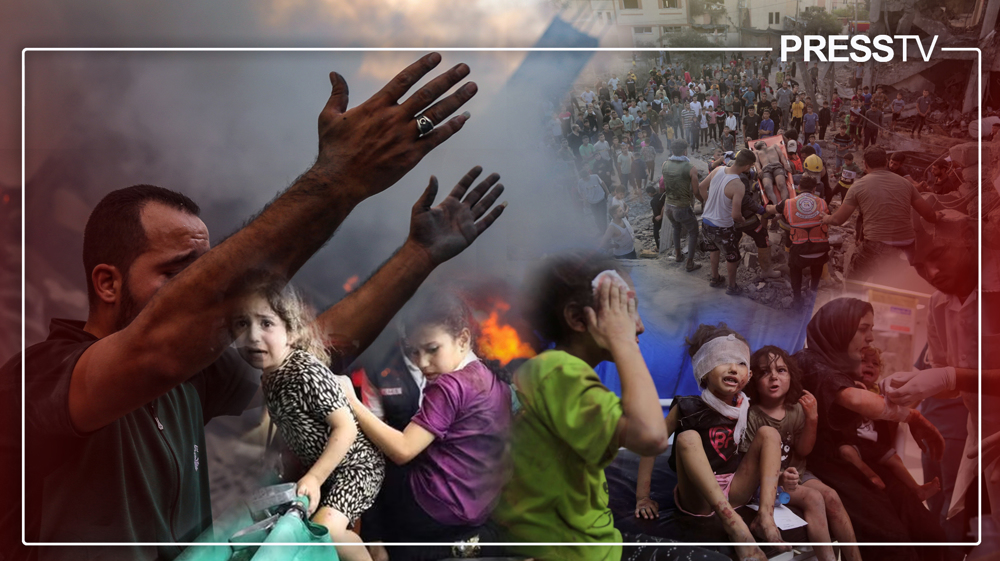
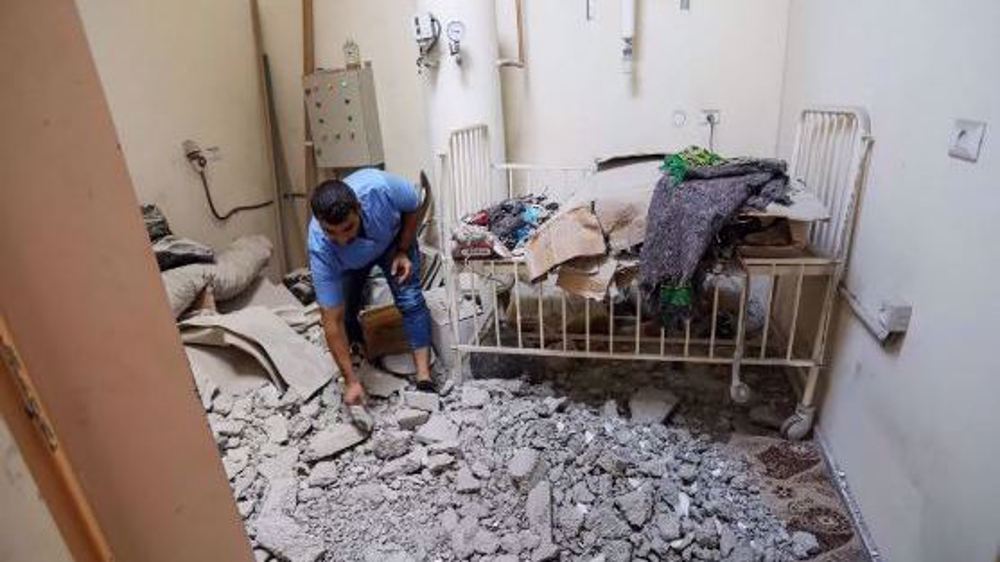
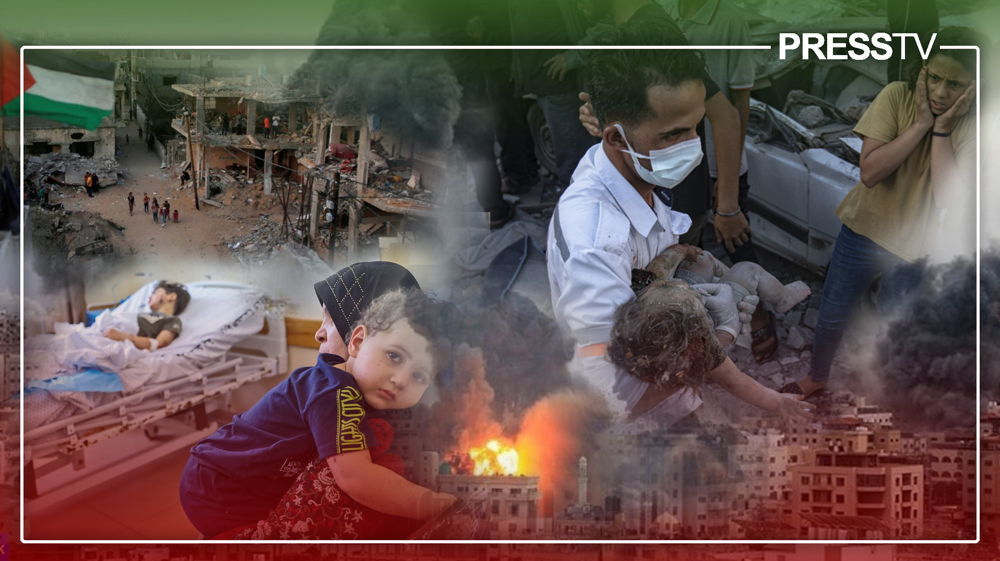
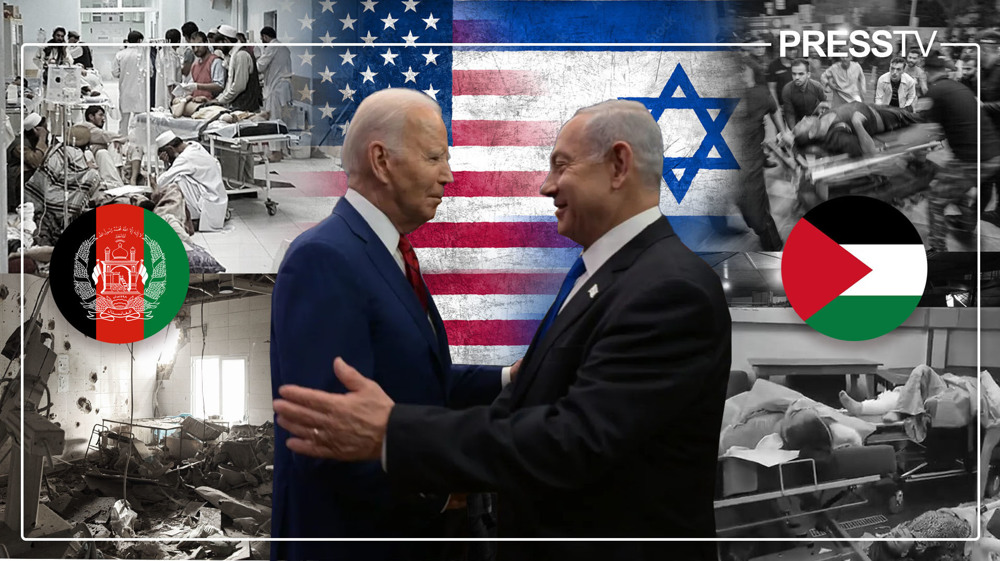
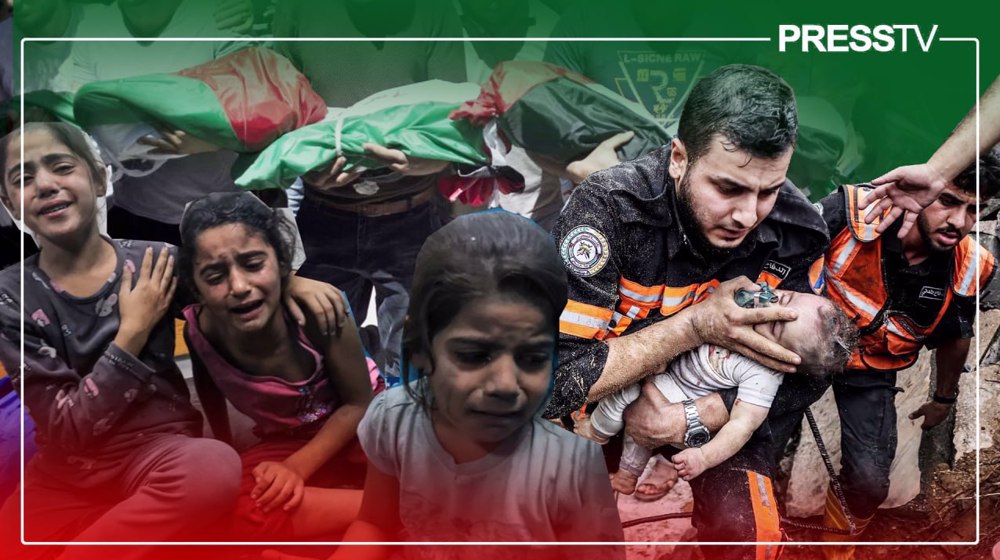
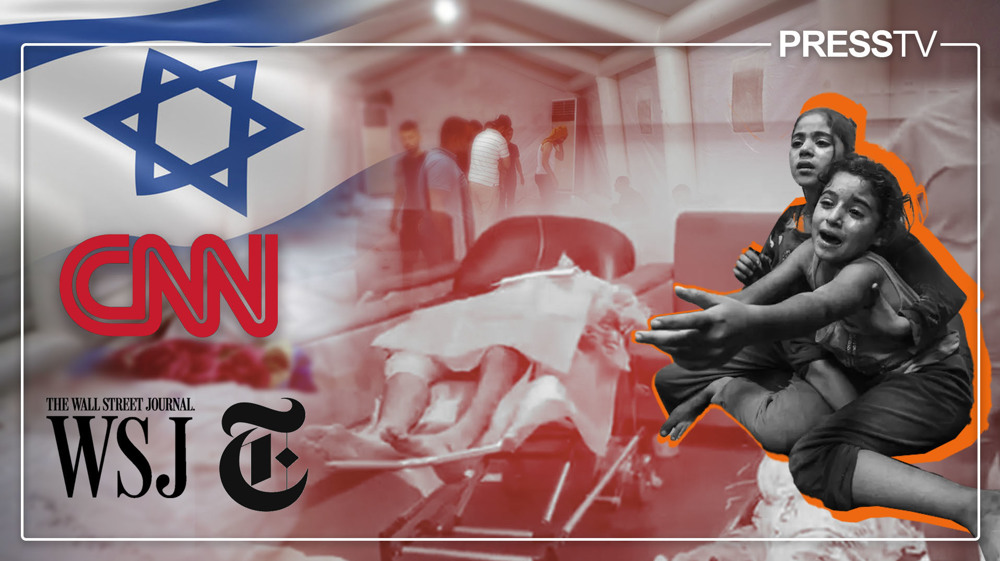

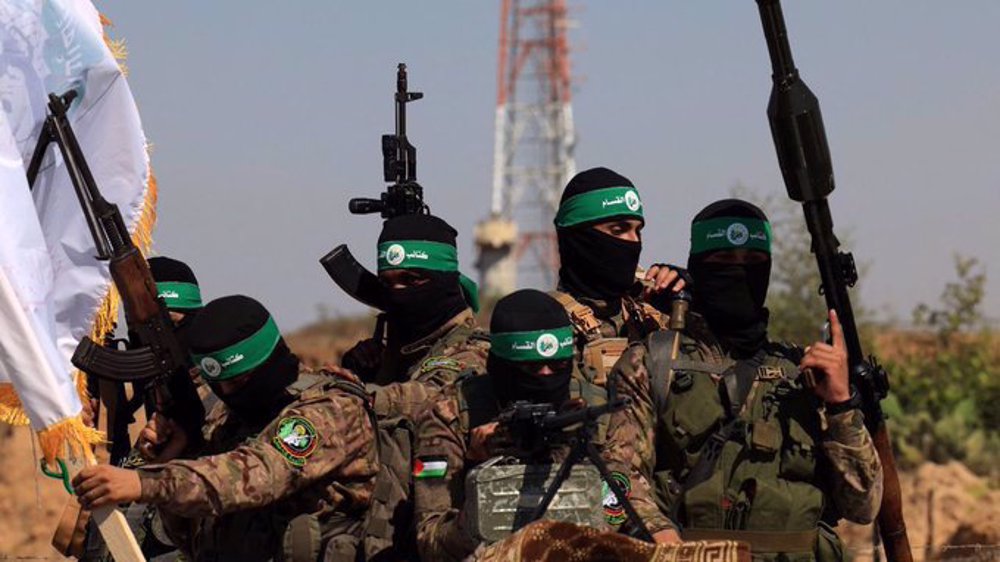
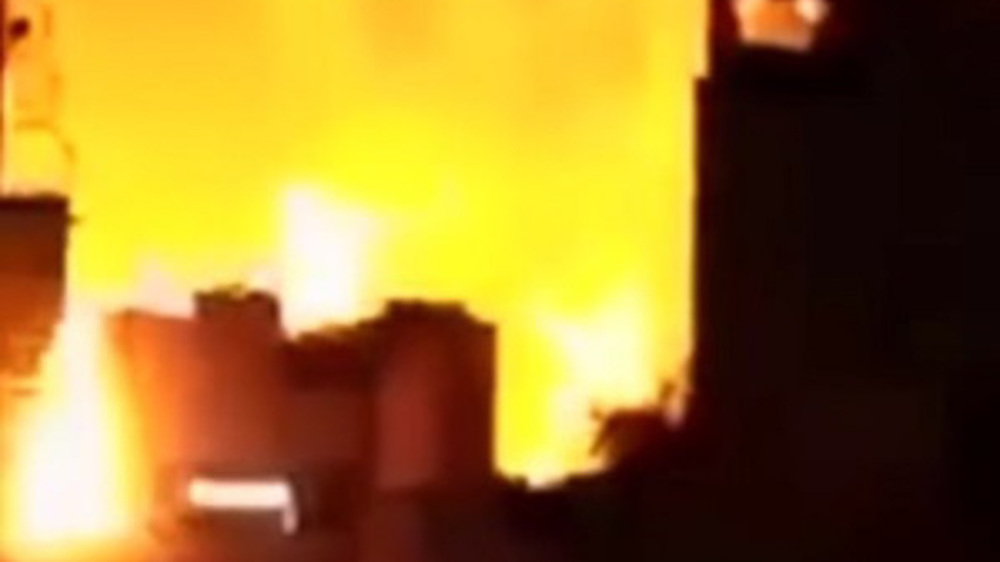



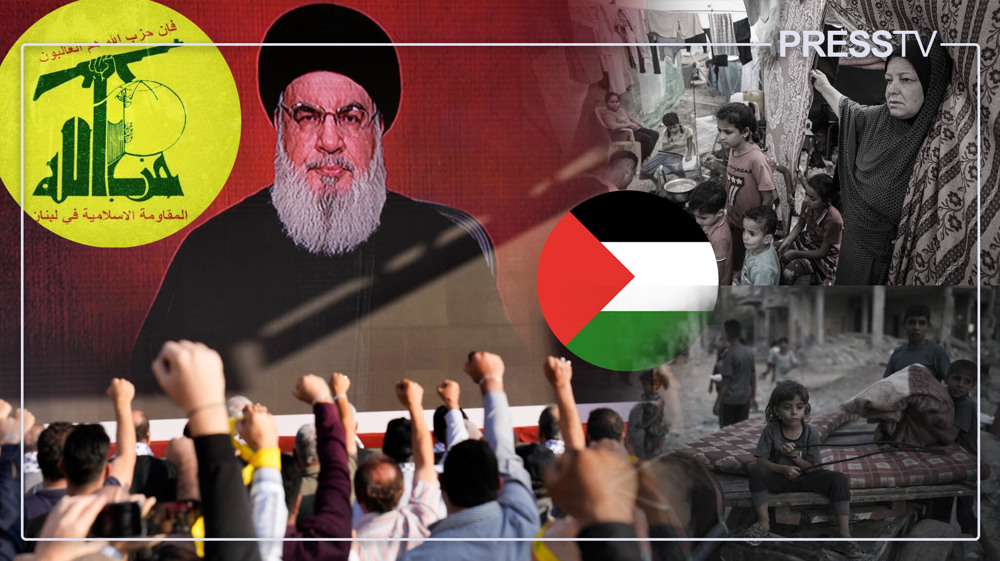
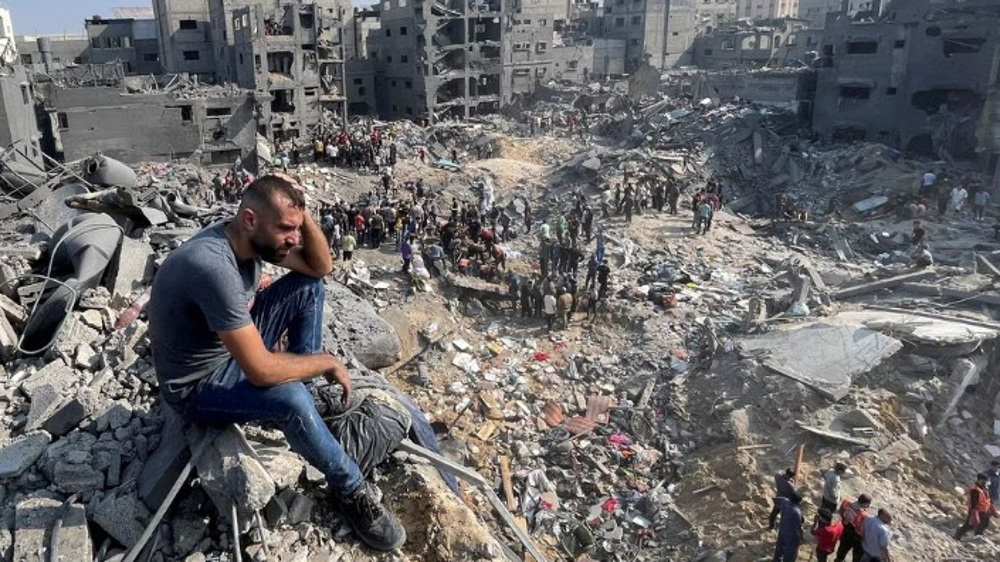
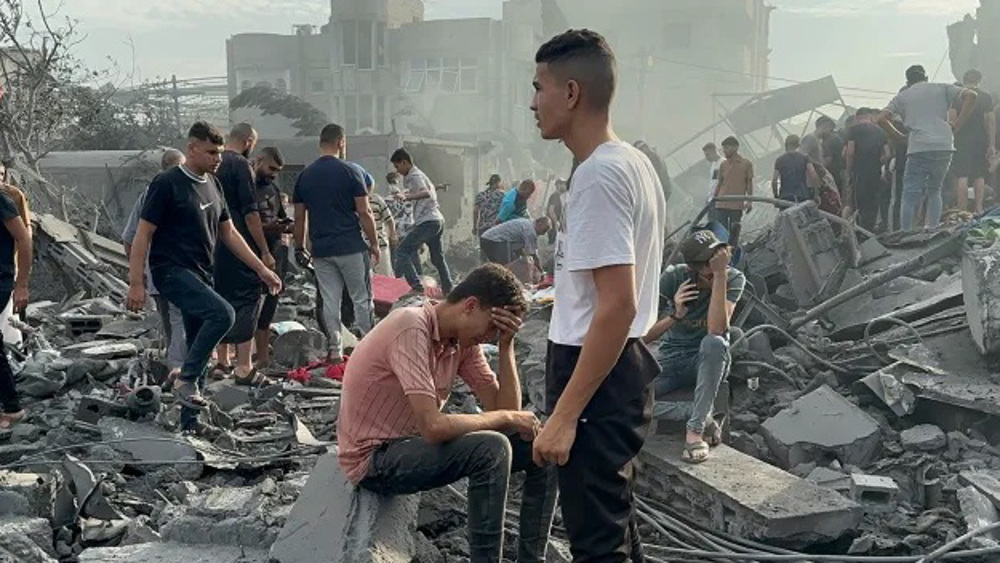
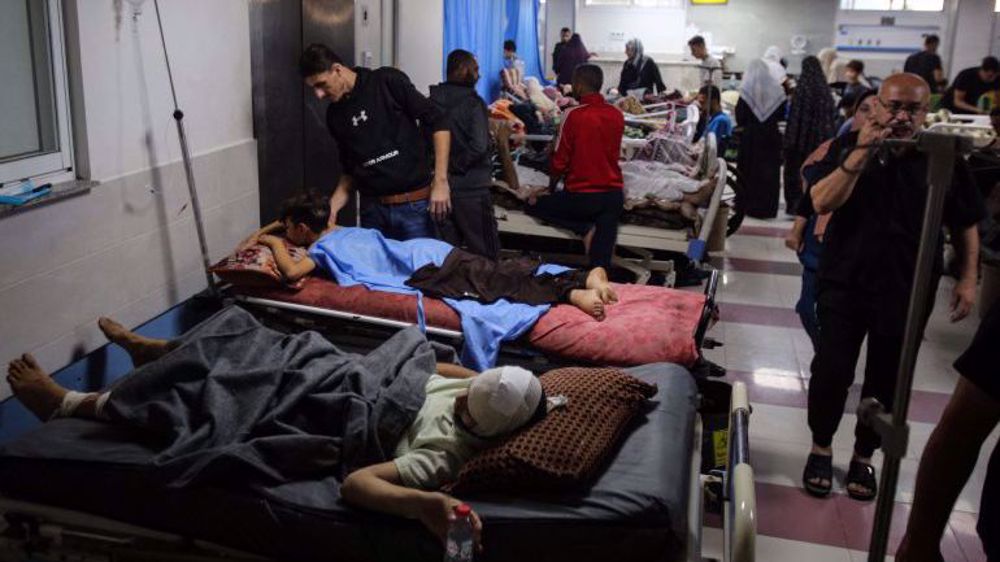
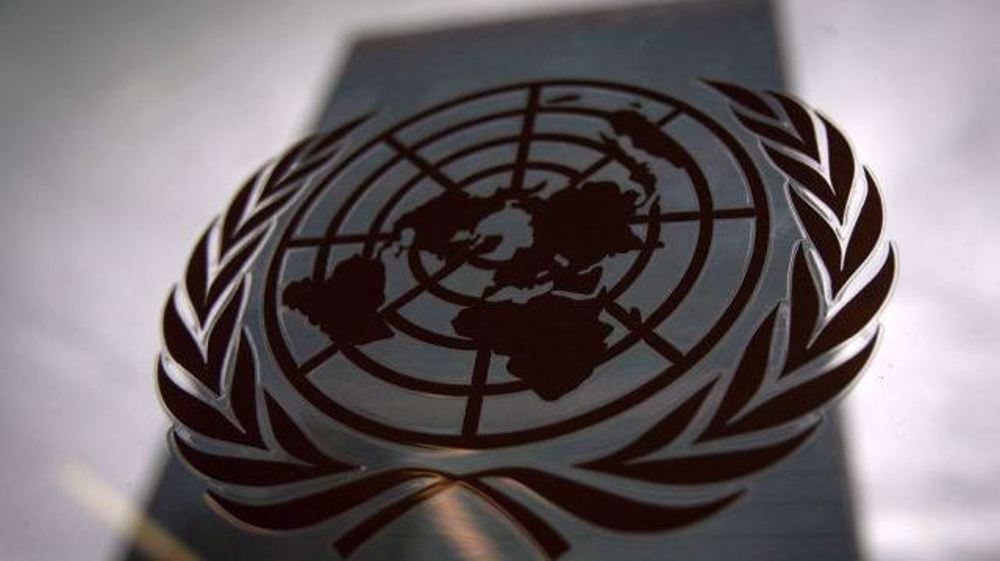

 This makes it easy to access the Press TV website
This makes it easy to access the Press TV website